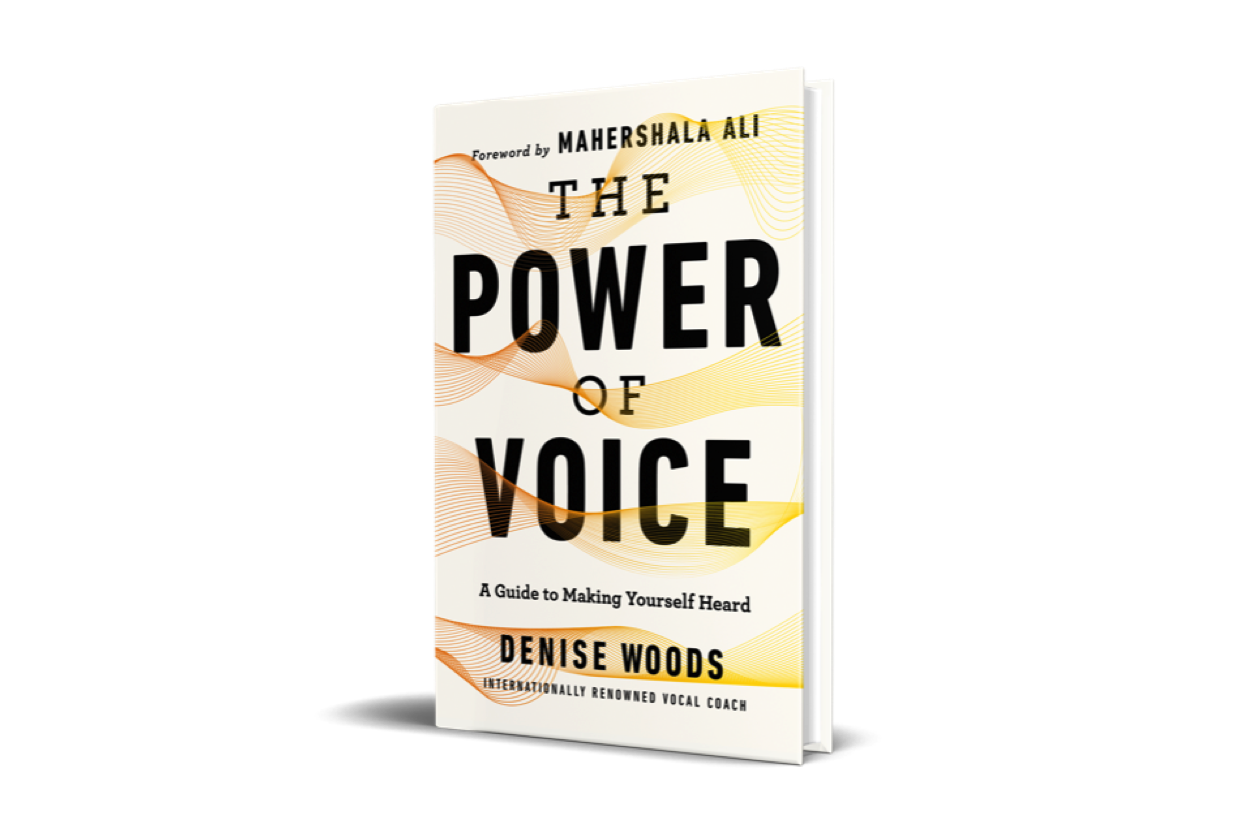Why Study Voice as an Actor?
Why study voice as an actor? I want to clarify what I mean. I’m talking about your speaking voice, not your singing voice. As a young budding actor, people would always assume I loved doing theatre, and they always said you had to be a triple threat, which meant you had to take voice classes and be a good singer. And when someone said “are you taking voice?”, I thought they meant singing voice. I never realized you had to study speaking voice as an actor. As I’ve developed as a professional— being on the other side of the camera as a director— when I open up someone’s audition tape, I may really like their look, but the moment they open their mouth I know they’re not right for the part. I realized that the voice is almost as important as the look of the person.
About five years ago, I decided to challenge myself to create more dynamic range within my voice as an actor. I started researching different books about the voice of an actor and I even found a local voice actor coach named Melinda Walsh to help me with my voice. I realized my voice was deep and somewhat monotone, causing limitations within my ability to get cast, and I knew I needed to diversify the sounds I was producing.
Every character you play as an actor can have special attention devoted just to how their voice sounds. As I did more research I realized that most A-list actors have voice coaches with them for every role that they play. I had turned over a new leaf— I realized there was more to learn, more growth, more capacity within my ability as an actor. If you ever listen to a British actor just read a poem and it melts your soul— Kenneth Branagh or Emma Thompson in the film adaptation of Shakespeare’s Much Ado About Nothing. It’s the power of the quality in the vocal dynamic range. Sometimes I feel so behind as an actor because I did not have the classical training that many actors were afforded as a young person. But I’ve decided that it’s never too late to challenge yourself as an actor, so I took on this new territory as a challenge to open up my new skill set.
The first time I met with Melinda Walsh, she had me play the same character with a bunch of different voices. High pitched, sexy, alluring, deep & dark. Changing the tone and the range of the voice each time made me realize how powerful changing the tone can be when creating character. And honestly it was just fun. I discovered something about developing a character I hadn’t put much thought into. I wish I had turned over this leaf many years ago.
I also found a book by Denise Woods called The Power of the Voice. She was the first black female voice coach at Juilliard. I bought the audio book and her voice sounded like a delicious caramel latte with foam. Or a buttercream pie— her voice is divine. Denise has vocal exercises you can do everyday to strengthen your vocal cords, diaphragm, and diction. She believes that going through the voice IS the way to create character.
Again, I was inspired. There was so much work to do on my instrument (my body) as an actor. As actors we’re taught we need to stay in shape, eat healthy, not age, have energy, diversify our talents. But somehow we leave out the voice, and our voice is a lazy tool, especially for television & film actors. I challenge myself to do the exercises in Denise’s book and the ones that Melinda has taught me daily with the great hopes that by the time I’m 80, I’ll have such diversity and distinction in my voice like the actresses Vanessa Redgrave and Judi Dench.
So when it comes to teaching acting, although I can’t spend every class discussing voice with students, because they’re there to learn the basic techniques and scene study skills, I do like to throw in a few voice exercises, and I encourage them to take privates with Melinda Walsh, our voice coach for Love Acting. Even if you’re not an actor, checking out Denise’s The Power of the Voice or getting a voice lesson can improve your public speaking, communication with your family, or walking out a leadership position in a company. It all starts with voice.
